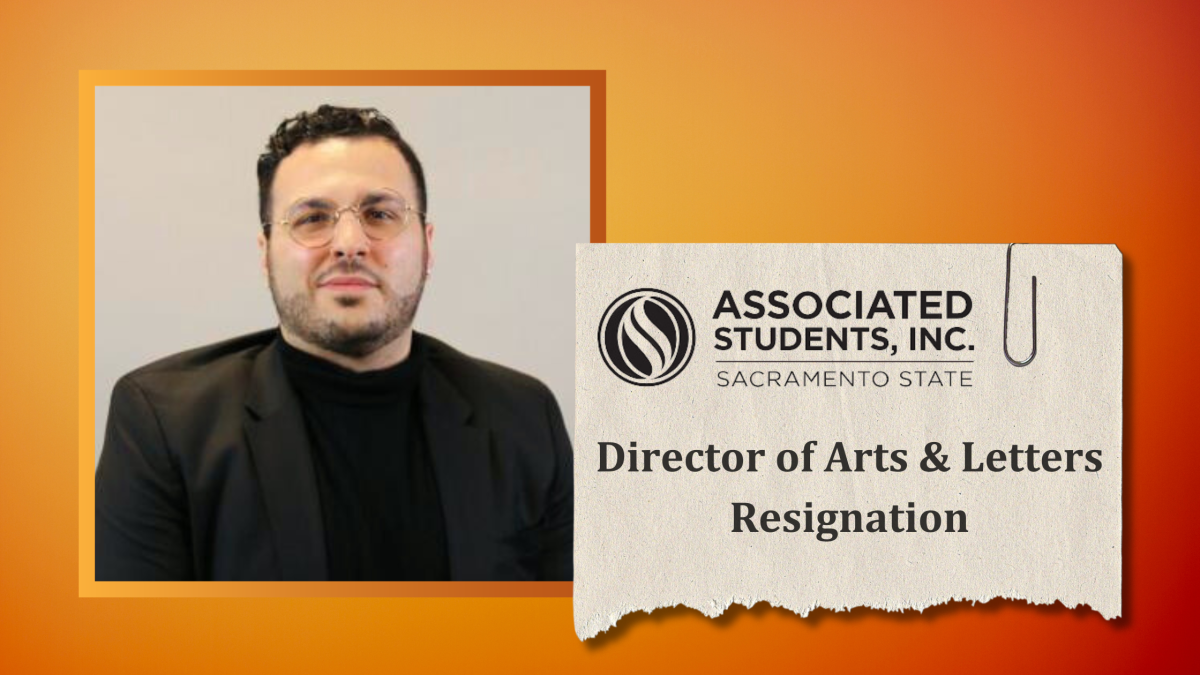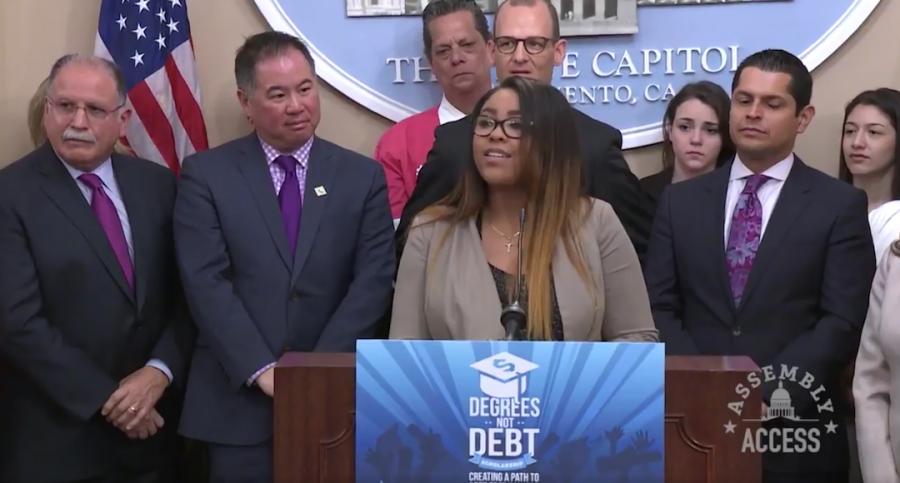California Assembly Democrats introduced a bill Monday that, if passed, would establish state-sponsored scholarships aimed at eliminating student debt and assisting the increasing number of students who face income insecurity while attending college.
The proposed plan would be the single biggest public investment in higher education in the U.S., quoted to cost approximately $1.6 billion annually. The bill’s announcement comes in the same year that the California State University Board of Trustees has considered raising tuition to cover the projected deficit between state funding and committed spending.
(Story continues below)
.@sacstate student Monique Graham: “I can’t tell you what my next step is” because of student loan debt. We must do better. #DegreesNotDebt pic.twitter.com/ZZRXKWWYfE
— Anthony Rendon (@Rendon63rd) March 14, 2017
Sacramento State alumnus and Assemblyman Kevin McCarty, D-Sacramento, identified by the Los Angeles Times as “spearheading” the bill, held a press conference Monday with Sac State fourth-year senior Monique Graham, who is currently $40,000 in debt, with six classes left until graduation.
The bill will likely have a tough time passing the pen of Governor Jerry Brown — whose Department of Finance has already cast doubt on the bill’s feasibility — as spokesperson H.D. Palmer is quoted in The Sacramento Bee asking, “A noble goal that comes with a very significant price tag, and the question is, ‘How would you pay for it?’ ”
The money is slated to come from the state’s general fund, but does not call for a tax increase as of yet. Proponents of the bill are already arguing for it as a measured response to preventing student debt.
Financial insecurity for the nearly 400,000 students in both the CSU and University of California systems is widespread. In the CSU system, the average annual cost of attendance is $21,000 per year, including expenses beyond tuition.
Under the scholarship, called “Degrees Not Debt,” students whose families make less than 60,000 would have the average cost of attendance fully paid. Students whose parents make above $60,000 yearly would pay partial expenses, in keeping with the Middle Class Scholarship that Brown proposed to cut in this year’s budget. Students whose families make above $150,000 would be ineligible for the scholarships.
All students in the program would be expected to work 15 hours a week year-round — likely a measure to retain many of the service jobs that college students typically hold — and also nothing new to the many students already holding part-time or full-time jobs.
In a statement provided to The State Hornet, McCarty said that the bill is a reflection of California’s already progressive reputation in regard to public education.
“California is once again leading the nation in making debt-free college a reality and I am proud of our critical work to help all of our state’s students achieve their academic goals,” McCarty stated.
Associated Students, Inc. Director of Business and California State Student Association Vice President of Finance Mia Kagianas attended the press conference, and said in an email to The State Hornet that the proposal, or any bill that focuses on student debt, is increasingly necessary.
“This debt is keeping graduates from contributing to the economy, pursuing a higher quality of life, and from experiencing more upward mobility in society,” Kagianas said.
Sac State students would largely be affected, like Ashley Melendez, a communications major and junior. She qualifies for the Middle Class Scholarship because of her parents’ income, but does not receive any help from her parents.
Melendez said she has worked full time for the entirety of her five years at Sac State, and even with that income and limited financial aid, she anticipates leaving with a degree and $30,000 of debt to pay off — $9,000 more than the average for a CSU student.
Another student, public relations and marketing junior Marley Walker, said that because her parents make just over the amount that makes her ineligible for financial aid, she has to work and go to school to afford living expenses, and does not understand why the line is drawn for some students while remaining an impasse for others.
“Just because they don’t make as much money as other people doesn’t mean they should get a free ride,” Walker said. “It’s a weird gray area for me to understand how all these people are qualifying for so much money that impacts their education so much and mine so little.”
Melendez said that if a student already has their expenses taken care of, it shouldn’t matter how other people benefit from the proposal.
“I’ve never heard of anyone complaining in terms of students that have parents pay for their tuition for them,” Melendez said. “It doesn’t affect them.”
































































































































